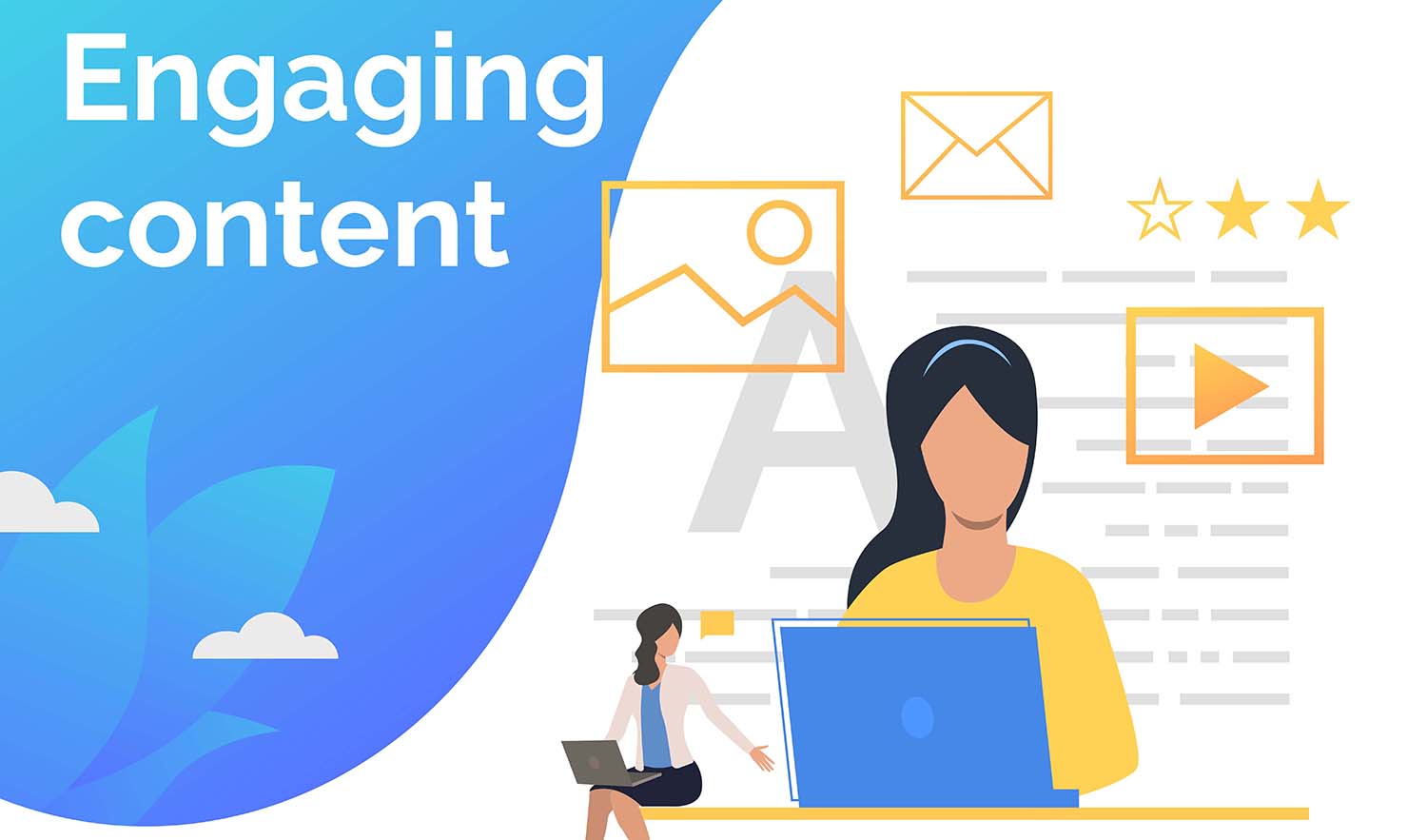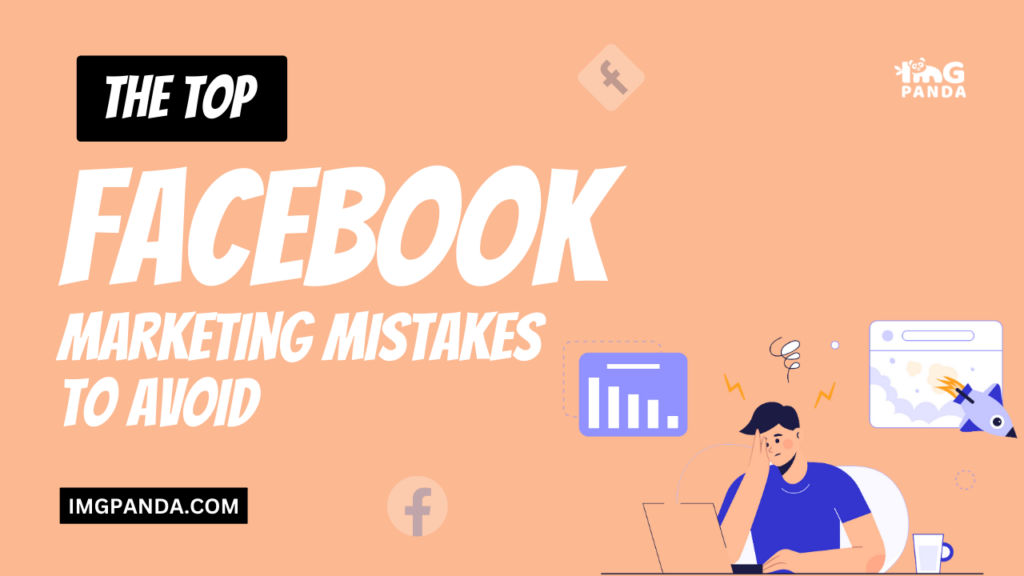Introduction
Facebook is one of the most popular social media platforms in the world, with over 2.8 billion active users as of 2021. This makes it a prime platform for businesses to reach their target audience and promote their brand. However, with so many businesses competing for attention on the platform, it's easy to make mistakes that can negatively impact your marketing efforts.
In this article, we will discuss the top Facebook marketing mistakes that businesses should avoid. By understanding these common pitfalls, you can develop a successful Facebook marketing strategy that resonates with your target audience, drives engagement, and ultimately leads to increased sales and revenue. Whether you're just starting out with Facebook marketing or looking to improve your existing strategy, these tips will help you avoid the most common mistakes and achieve success on the platform.
[caption id="attachment_192540" align="alignnone" width="1500"] Facebook Marketing[/caption]
Facebook Marketing[/caption]
Also Read This: Downloading from 123RF: Easy Steps
Mistake 1: Not Defining a Clear Goal
One of the most common mistakes businesses make with Facebook marketing is not defining a clear goal. Without a clear goal, it's difficult to develop a strategy that effectively reaches and engages your target audience. Some businesses may think that simply having a presence on Facebook is enough, but in reality, a clear goal is necessary to ensure your efforts are aligned with your business objectives.
When setting a clear goal for your Facebook marketing efforts, it's important to consider what you hope to achieve. Some common goals include:
Increasing brand awareness:
If your goal is to build brand awareness, you may focus on creating engaging content that showcases your brand's values and mission, or on promoting your brand to new audiences through targeted Facebook ads.
Driving traffic to your website:
If your goal is to increase website traffic, you may focus on creating content that links back to your website or on running Facebook ads that direct users to specific landing pages on your site.
Generating leads:
If your goal is to generate leads, you may focus on creating content that encourages users to provide their contact information, or on running lead ads that allow users to submit their information directly on Facebook.
Increasing sales:
If your goal is to increase sales, you may focus on creating content that promotes specific products or on running ads that offer discounts or promotions to incentivize purchases.
Once you've defined your goal, you can develop a strategy that supports that goal and measure your success based on how well you've achieved it. It's important to track and analyze your results regularly to ensure that you're making progress toward your goal and adjust your strategy as needed. By defining a clear goal and tracking your progress, you can ensure that your Facebook marketing efforts are aligned with your overall business objectives and that you're achieving the results you need to succeed.
[caption id="attachment_192541" align="alignnone" width="1500"] Mistake 1: Not Defining a Clear Goal[/caption]
Mistake 1: Not Defining a Clear Goal[/caption]
Also Read This: The Benefits of SMS Marketing for Your Business
Mistake 2: Ignoring the Target Audience
Another common mistake businesses make with Facebook marketing is ignoring their target audience. Understanding and engaging with your target audience is crucial for success on the platform. Without a deep understanding of your audience's demographics, interests, and behaviors, it's difficult to create content that resonates with them or target them effectively with ads.
To avoid this mistake, it's important to research and understands your target audience on Facebook. Some ways to do this include:
Use Facebook Insights:
Facebook Insights provides a wealth of data about your audience, including demographic information, interests, behaviors, and more. By analyzing this data, you can gain insights into who your audience is and what content they engage with most.
Conduct surveys:
Surveys can help you gather more specific information about your audience's interests, preferences, and pain points. You can use tools like SurveyMonkey or Facebook's own survey feature to conduct surveys on the platform.
Monitor engagement:
Monitoring engagement on your posts can help you understand what content resonates with your audience and what doesn't. Pay attention to which posts receive the most likes, comments, and shares, and use that information to inform your content strategy.
Once you have a better understanding of your audience, you can create content that speaks to their interests and needs, and target them more effectively with Facebook ads. By engaging with your target audience, you can build stronger relationships with your customers and increase the likelihood of conversions and sales.
[caption id="attachment_192542" align="alignnone" width="1500"] Mistake 2: Ignoring the Target Audience[/caption]
Mistake 2: Ignoring the Target Audience[/caption]
Also Read This: Adobe Stock vs iStock: Which is the better option for your creative projects?
Mistake 3: Failing to Create Engaging Content
Another common mistake businesses make with Facebook marketing is failing to create engaging content. With so much content vying for attention on the platform, it's important to create content that stands out and captures your audience's attention.
To create engaging content, it's important to focus on quality over quantity. Rather than posting frequently, aim to create content that is valuable, relevant, and interesting to your audience. Some tips for creating engaging content include:
Use visuals:
Visual content, such as images, videos, and infographics, tend to perform better on Facebook than text-only posts. Use high-quality visuals that are eye-catching and relevant to your audience.
Keep it short and sweet:
Facebook users have short attention spans, so keep your posts brief and to the point. Focus on one key message or idea in each post.
Add a call to action:
Encourage your audience to take action by adding a call to action (CTA) to your posts. This could be as simple as asking them to like, share, or comment on your post, or directing them to your website for more information.
Experiment with different formats:
Don't be afraid to try out different content formats, such as Facebook Live videos or interactive polls, to see what resonates with your audience.
By creating engaging content, you can increase your reach and engagement on the platform, build brand awareness, and ultimately drive more conversions and sales. Don't be afraid to experiment with different types of content and monitor your results to see what works best for your audience.
[caption id="attachment_192543" align="alignnone" width="1500"] Mistake 3: Failing to Create Engaging Content[/caption]
Mistake 3: Failing to Create Engaging Content[/caption]
Also Read This: The Do’s and Don’ts of Using Stock Images
Mistake 4: Inconsistent Posting
Another common mistake businesses make with Facebook marketing is inconsistent posting. Posting too infrequently or too often can lead to low engagement and fewer conversions. To avoid this mistake, it's important to establish a consistent posting schedule that aligns with your business goals and your audience's behavior. Consider factors such as your audience's time zone, their preferred times of day for social media use, and the type of content you're sharing when determining your posting schedule.
It's also important to avoid over-posting, which can lead to "content fatigue" and overwhelm your audience. Instead, focus on quality over quantity, and aim to provide value with each post. Some tips for maintaining a consistent posting schedule include:
Create a content calendar:
A content calendar can help you plan and organize your posts in advance, ensuring that you have a consistent flow of content that aligns with your business goals.
Use a scheduling tool:
Scheduling tools such as Hootsuite, Buffer, or Facebook's own scheduling feature can help you automate your posting schedule and ensure that your content is shared at the optimal times.
Monitor engagement:
Pay attention to which posts receive the most engagement and adjust your posting schedule accordingly. If certain types of posts tend to perform better at certain times, consider scheduling more of those types of posts during those times.
By maintaining a consistent posting schedule, you can keep your audience engaged and build stronger relationships with your customers over time.
[caption id="attachment_192544" align="alignnone" width="1500"] Mistake 4: Inconsistent Posting[/caption]
Mistake 4: Inconsistent Posting[/caption]
Also Read This: List of Top Startups on Linkedin from India in 2023
Mistake 5: Not Analyzing Results
One of the biggest mistakes businesses make with Facebook marketing is failing to analyze their results. Without analyzing your performance metrics, you won't know what's working and what's not, making it difficult to make informed decisions about your content and advertising strategies.
To avoid this mistake, it's important to regularly track and analyze your Facebook performance metrics. Some key metrics to monitor include:
Reach:
This metric tells you how many people your content has reached. Monitoring your reach can help you determine how effectively you're reaching your target audience.
Engagement:
Engagement metrics such as likes, comments, and shares can help you understand how well your content is resonating with your audience. If you're not seeing high engagement rates, it may be a sign that you need to adjust your content strategy.
Click-through rates (CTR):
CTR measures how many people clicked through to your website or landing page from your Facebook ads. Monitoring your CTR can help you determine the effectiveness of your ad targeting and messaging.
Conversion rates:
Conversion rates tell you how many people took a desired action on your website, such as making a purchase or filling out a contact form. Monitoring your conversion rates can help you determine the effectiveness of your ad targeting, messaging, and landing pages.
By regularly analyzing your results, you can identify areas for improvement, optimize your content and advertising strategies, and ultimately drive better results for your business. Facebook's built-in analytics tools, such as Facebook Insights and Ads Manager, can provide you with the data you need to make informed decisions and improve your performance over time.
[caption id="attachment_192545" align="alignnone" width="1500"] Mistake 5: Not Analyzing Results[/caption]
Mistake 5: Not Analyzing Results[/caption]
Also Read This: Pixel Profits: Exploring How Much Money You Can Make on iStock
Mistake 6: Overlooking Facebook Ads
Another common mistake businesses make with Facebook marketing is overlooking the potential of Facebook ads. While organic reach and engagement are important, Facebook ads can help you reach a larger audience and drive more targeted traffic to your website.
To avoid this mistake, consider incorporating Facebook ads into your marketing strategy. Some benefits of Facebook ads include:
Increased reach:
Facebook ads can help you reach a wider audience than organic posts alone, as you can target specific demographics, interests, and behaviors.
Better targeting:
Facebook's targeting capabilities allow you to reach the most relevant audience for your business, which can help you achieve higher conversion rates and a better return on investment (ROI).
Cost-effective:
Facebook ads can be a cost-effective way to promote your business, as you can set your own budget and only pay for the results you want.
Versatility:
Facebook ads come in a variety of formats, including image ads, video ads, carousel ads, and more, which allows you to experiment with different ad types and find what works best for your business.
When setting up your Facebook ads, it's important to establish clear goals and target the right audience. Consider factors such as demographics, interests, behaviors, and location when setting up your ad targeting. By incorporating Facebook ads into your marketing strategy, you can expand your reach, drive more targeted traffic to your website, and ultimately achieve better results for your business. Here's a video highlighting nine common Facebook marketing mistakes to steer clear of, along with effective solutions.
Also Read This: How to Credit Storyblocks: A Quick Tutorial
FAQs
What are some common mistakes businesses make with Facebook marketing?
Common mistakes include not defining a clear goal, ignoring the target audience, failing to create engaging content, inconsistent posting, not analyzing results, and overlooking Facebook ads.
How can I define a clear goal for my Facebook marketing strategy?
Start by identifying your business objectives and what you hope to achieve through Facebook marketing. Then, establish specific, measurable goals that align with those objectives, such as increasing website traffic, generating leads, or driving sales.
Why is it important to create engaging content on Facebook?
Engaging content can help you attract and retain your audience's attention, drive higher levels of engagement, and ultimately, build stronger relationships with your customers.
How can I avoid inconsistent posting on Facebook?
Establish a consistent posting schedule that aligns with your business goals and your audience's behavior. Use a content calendar and scheduling tools to plan and automate your posting schedule, and monitor engagement to determine which types of posts perform best at certain times.
Why is it important to analyze results on Facebook?
Analyzing your Facebook performance metrics can help you identify areas for improvement, optimize your content and advertising strategies, and ultimately drive better results for your business.
How can Facebook ads help my business?
Facebook ads can help you reach a wider, more targeted audience, increase website traffic, and achieve better ROI. By experimenting with different ad formats and targeting options, you can find what works best for your business and achieve your marketing goals more effectively.
Conclusion
In conclusion, Facebook can be an incredibly powerful marketing tool for businesses, but it's important to avoid common mistakes that can hinder your success. By defining clear goals, targeting the right audience, creating engaging content, posting consistently, analyzing your results, and utilizing Facebook ads, you can build a strong presence on the platform and drive real results for your business.
Remember, Facebook is constantly evolving, so it's important to stay up-to-date on the latest trends and best practices to ensure you're getting the most out of your Facebook marketing efforts. With the right strategy and a willingness to experiment and adapt, Facebook can be a valuable asset for any business looking to grow and succeed in today's digital age.









































